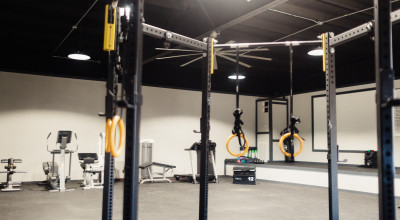Why Do I Need Help? I’m Not the One With the Problem!
April 14th, 2025
By P. Casey Arrillaga, LCSW, LCDC
When a loved one is struggling with addiction or any other mental health issue, family members are often encouraged to get involved. They are usually both the first people called and the last resort when everyone else has given up. Sometimes family members throw their hands in the air and watch with despair or anger from the sidelines as their loved one struggles. Other times, families dive in to try to save their loved one, but see little improve no matter how hard they try. No matter which side of the fence a family is on at any given time, when they hear that they need recovery, they are often skeptical. This post explores what all this often looks like to families, how it can look instead, and how we can help.
What It Looks Like to Families
Mental health issues, including addiction, are complex, frustrating, and overwhelming for many families. While many other life-threatening and chronic medical conditions can make this same claim, mental health issues are particularly difficult, because they can profoundly affect what choices they make, including ones that are very self-destructive. Where families may find compassion easier when someone they love is obviously and outwardly sick, this can be much harder when the same person’s behavior starts to change for the worse.
To make things even harder, many people with mental health issues are resistant to change, even change they say they want. Just as often, that loved one doesn’t seem to even accept that they have a problem. What seems obvious from the outside doesn’t seem so obvious to the person whose mental health is suffering.
This leaves families with a real dilemma. Often, they have tried everything they can think of before professional help is enlisted. When they finally reach outside of the family, it can be a shock when the family is told they need recovery, too.
Many family members are resistant to accepting this idea. After all, they aren’t the ones with the problem, right? Many families believe that if the person who is obviously struggling can get better, then the rest of the family will be just fine. In working with families around such issues for over 10 years, I have yet to meet a family for whom this is true, but it is an understandable conclusion to draw.
Sometimes family members feel pressured to join family therapy meetings, family workshops, classes. recovery fellowships, etc. When they think their arms are being twisted, some actively resist or show up grudgingly. There may be conflict in the family about how much everyone should be involved. Some family members try to get the rest of the family to line up and participate. They do this in the belief that this is the only way their loved one who is struggling can get better. However well intentioned, this can lead to resentment and heightened tensions. Sometimes marriages even break up and family members stop talking to each other over such conflicts.
How it Can Look Instead
Families don’t have to be in conflict over the struggle with addiction and other mental health conditions, let alone over whether and how much to accept recovery. To get out of that conflict or avoid it altogether, they may need to change some of their thinking about mental health, though.
It can help immensely to accept that no one has the magic power to force solutions on people who don’t think they need one. Family members can save hours of fighting and heartache when they stop trying to save their loved one from themselves. Instead, families can set healthy boundaries about what they will and won’t accept and then let the person with the issues decide for themselves. While this may seem heartless to some, it is actually a loving gesture. It projects respect for the person’s autonomy and acceptance that they must make their own choices, yet is also makes clear that the family is not going to participate in further destruction. It should be made clear that the family still loves the person who is struggling, but they are ready to get off the rollercoaster.
While this is not a fancy way to get the one who is struggling to change their minds and get help, it may be an important and even deciding factor for some about when and how they are willing to accept it.
Similarly, it will do little good for family members to try to force each other to participate. Instead, those who are ready to try their own recovery should do so, and the others will have to come to their own conclusions. There are people recovering from addiction and other mental health issues every day who have no family support at all. This shows that it is not up to the family to save their loved one, as much as they may tell themselves otherwise.
This all sounds good in theory, but making such a change in family attitudes is very difficult for most people. It is the easiest thing in the world to go back to old attitudes and behaviors. This is why there is such a strong suggestion for families to get help when a loved one is struggling. Not only will they need a source of better ideas, but they will need support, encouragement, and good examples to stay on track and not drift back to what they were doing before. All of this can be found through family recovery fellowships such as Al-Anon and SMART Recovery Family & Friends. It can also be found through the resources we offer at Windmill.
In all of this, we can see that families are just like the individuals who had an issue in the first place: many will struggle to even see they have a problem, some will fight the idea that they need help, and all will benefit from support when they are willing to get it.
How Do We Use This Knowledge to Help People?
At Windmill, we understand that mental health issues including addiction are extremely difficult for everyone in the family. That’s why we offer a wide range of support for families and not just the person who comes to us for treatment. We don’t blame or shame families, we nurture them through a variety of services, all of which are included in our program.
We have a family workshop every weekend where are all are welcome to attend. This provides education, support, and the examples of many alumni families who have been attending for months and years after their loved one has been to Windmill. We have a SMART Recovery Family & Friends meeting every weekend as well, where we teach concrete skills families can use to heal and grow together. Both of these meetings are hybrid, meaning families can attend in person or online, so no one is left out. Families can continue to participate in these meetings for as long as they like even after their loved one has left treatment.
If the person who comes to treatment is willing, we also offer individualized family sessions in person or online. We have a free family course available to anyone anywhere even if they don’t have a loved one at Windmill, we sponsor the podcast “Addiction and the Family” on audio and video, we have a series of videos that include information and ideas for family members, we use my books “Realistic Hope” and children’s books including “Mommy’s Getting Sober” as resources for our clients, and put out biweekly blog posts such as this that often include information for family members. We field questions and offer help to family members every day through our admissions department via email or at (830) 935-2800.
The Bottom Line
Engaging in recovery as a family is not just about supporting a loved one; it’s about creating a healthier, more cohesive unit where everyone can thrive. At Windmill, we are committed to offering the tools, support, and resources necessary for families to embark on this transformative journey together. Remember, recovery is a lifelong process, and with the right support, families can emerge stronger and more united than ever.
About The Author
P. Casey Arrillaga is the Team Leader for Education at Windmill Wellness Ranch, and he is the author of books including “Realistic Hope: The Family Survival Guide for Facing Alcoholism and Other Addictions”.


